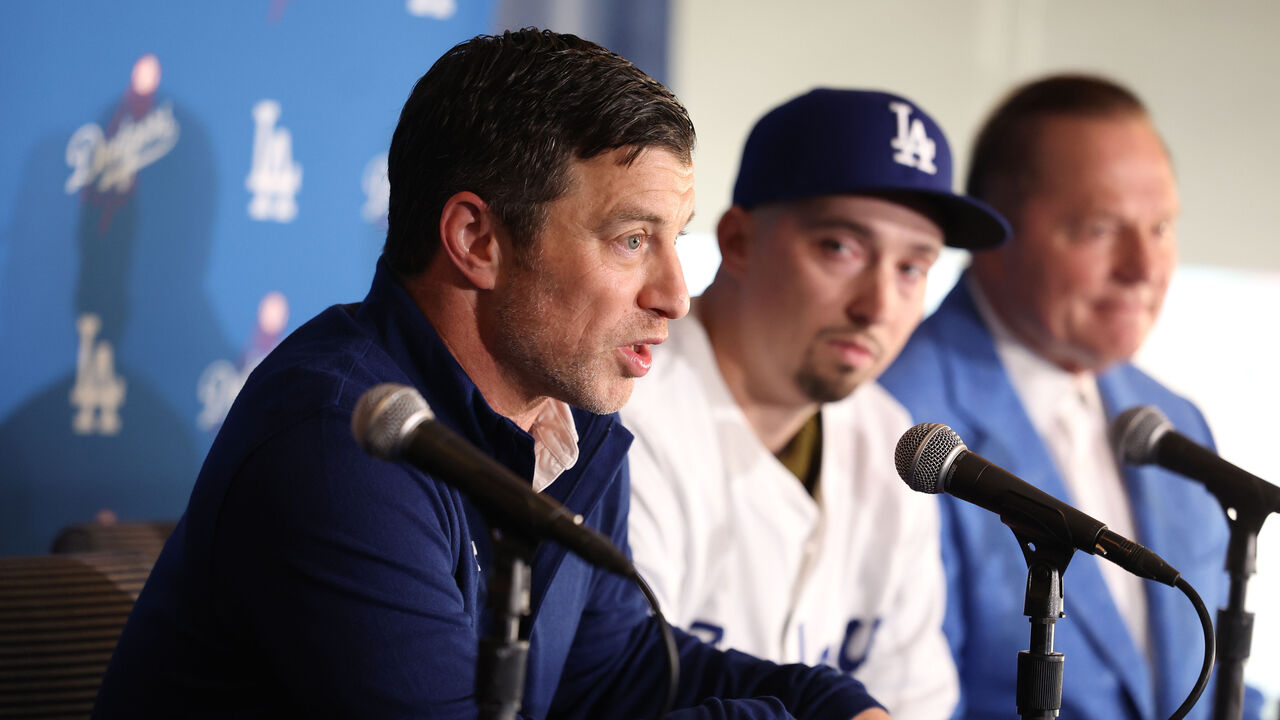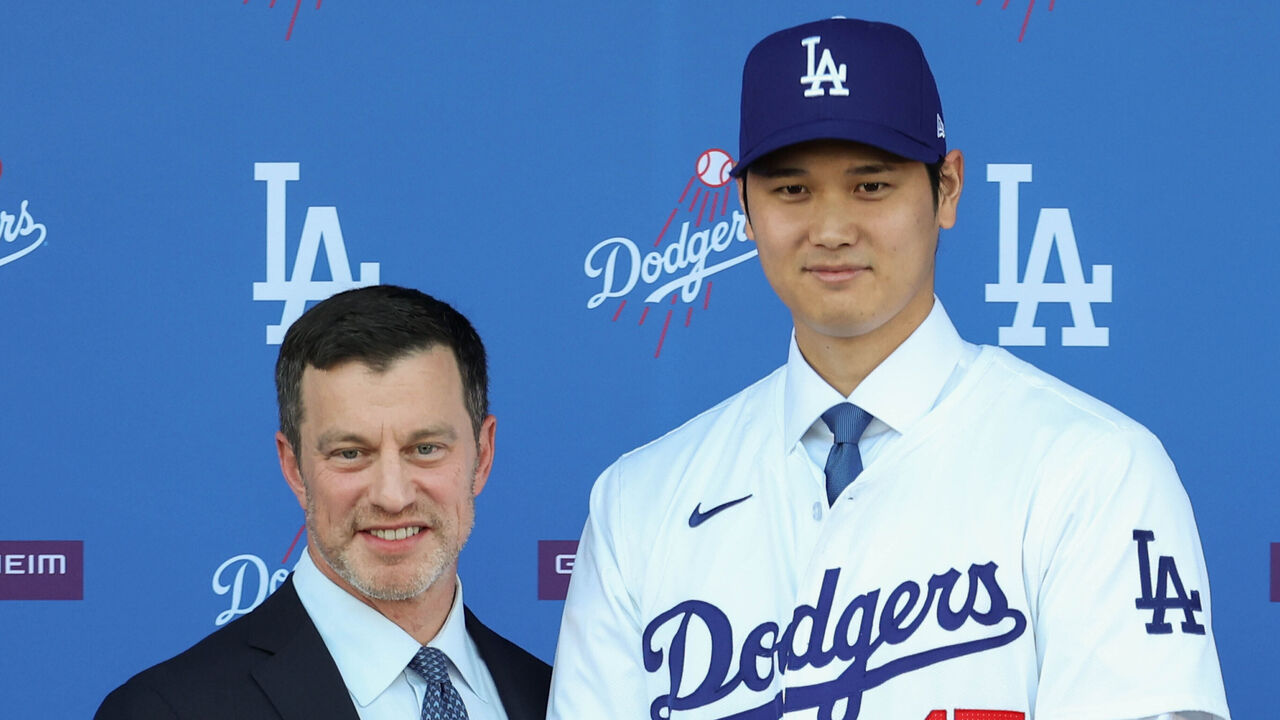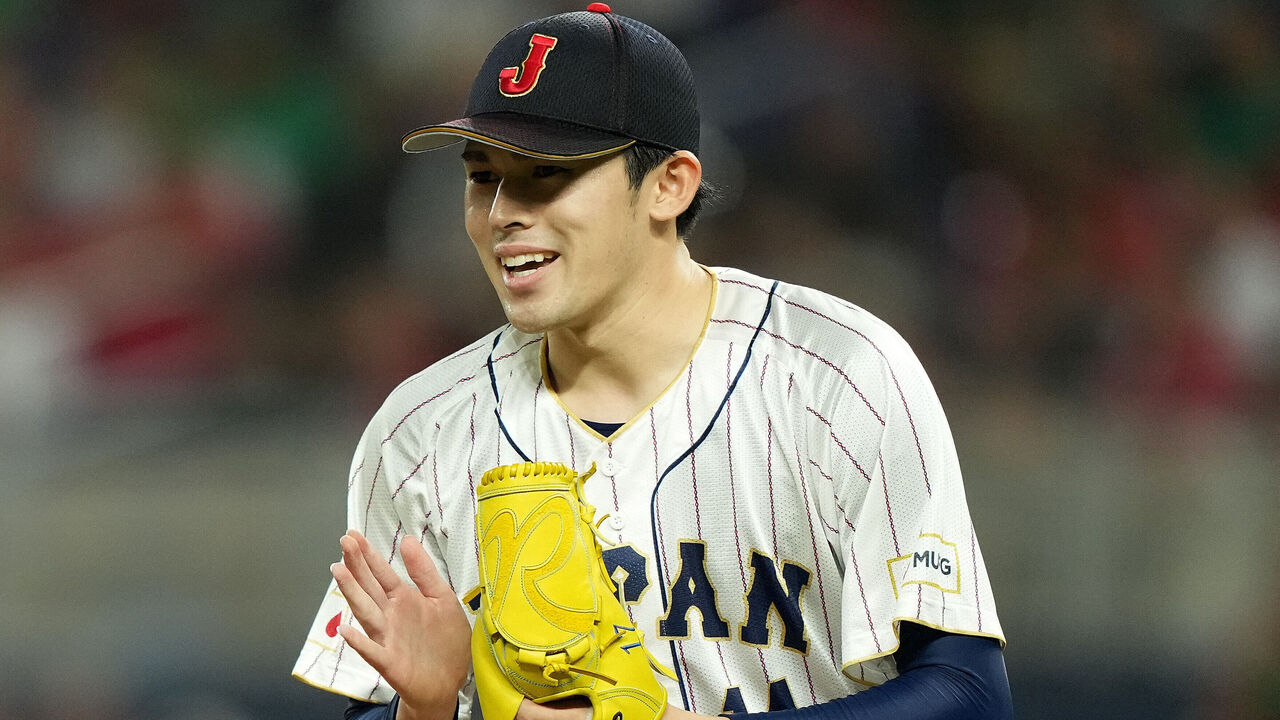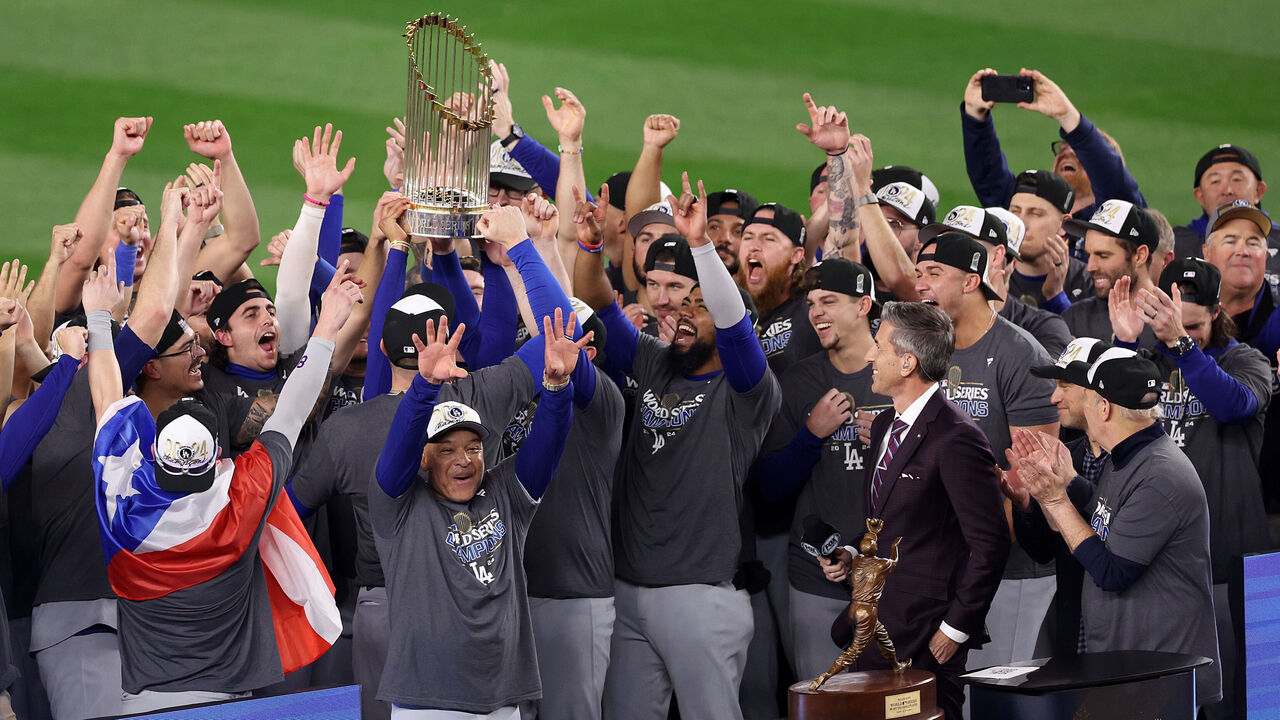Dodgerproofing baseball: How to save the game from its evil empire
Former major leaguer and NESN personality Lou Merloni recently joked on social media that he would like to see the Los Angeles Dodgers sign Pete Alonso.
"He can pinch hit and spell (Shohei) Ohtani on nights he pitches. Maybe even play first base once in a while to keep (Freddie) Freeman healthy. You need depth!" Merloni quipped.
And while they're at it, Merloni added, they might as well sign Alex Bregman, another top free agent.
The tongue-in-cheek post came after the Dodgers signed Tanner Scott, the top reliever available on the market, on Sunday. That signing followed the decision of the top international pitcher, Roki Sasaki, to join the club Friday. Three days earlier, it was reported the franchise is closing in on reliever Kirby Yates.
The Dodgers are making a joke of the extreme imbalance found in MLB's competitive landscape.
Consider that Sasaki, Scott, Yates, Blake Snell, Ohtani (limited to hitting), and Tyler Glasnow (injured) did not pitch for the Dodgers in the postseason last fall, and they still won the World Series.

They're favorites to win the World Series again in 2025. No team has won consecutive titles since the 1998-2000 Yankees. It's tough to regularly advance in baseball's expanded playoff era, let alone go all the way, but this feels like a potential dynasty.
But for many fans around the continent, it feels like the season is over before it begins. As Cubs baseball operations chief Jed Hoyer told Bob Nightengale of USA Today last week, the Dodgers simply do everything well.
"People focus on the size of their payroll and the deferments, and stuff like that, but it's just a great organization that's kind of running on all the cylinders," Hoyer said. "They do well in the draft. They do well internationally. They make smart trades. They do a good job finding value on the margins. And they also can go sign major free agents.
"So, I just think that focusing on the amount of money they spend does a disservice to an organization that's running at a really high level."
The Dodgers are an example of what happens when "Moneyball" brains - Andrew Friedman and the baseball operations team he's assembled - are combined with the financial might of Guggenheim Baseball Management, the ownership group that features billionaires Mark Walter and Todd Boehly, as well as Magic Johnson, Stan Kasten, and Billie Jean King.
But Hoyer's point misses the essence of the animosity.

The subtitle of "Moneyball" was "The art of winning an unfair game." Now the data- and science-driven processes that lifted early adopters of the approach have been accepted and refined by a financial superpower. The Dodgers can find and squeeze value like the best small-market clubs while landing superstar talents, all while dodging the full brunt of their luxury-tax bill. There are few constraints on what they can do.
Perception matters. And the perception of MLB is that its playing field is too imbalanced in favor of the wealthiest teams.
So how can MLB Dodgerproof itself?
Stop the tax dodging
The deferred money the Dodgers are handing out should be addressed when the current collective bargaining agreement is up for renegotiation after the 2026 season.
If players want to defer money, that's their business. But teams should not be able to reduce their luxury-tax payments by deferring money.
Ohtani's 10-year, $700-million deal should count as a $70 million per year against the tax threshold, not the $46-million figure that accounts for the deferments Ohtani won't see until after the deal expires.
If franchises want to build a superteam on the open market, nothing is stopping them. But they should have to pay full freight.
Nudging the other guys
Baseball should incentivize all 30 owners to compete - if only to fight the perception problem in smaller markets.
There's endless discussion on social media and talk radio about cheap owners and payroll discrepancy, even though scouting and player development capabilities mean much more to an organization than free-agent spending. Such talk is a raincloud hanging over the sport, and the Dodgers' maneuvers are only increasing the amount of chatter.
At the Pittsburgh Pirates' fan event over the weekend, chants of "sell the team" broke out as team president Travis Williams and broadcaster Greg Brown were taking questions.
Don't have it on video, but here is a transcribed layout of how the "sell the team" chant went down during the first question of "Ask Pirates management" at Pirate fest: pic.twitter.com/8e7WG87rZX
— Noah Hiles (@_NoahHiles) January 18, 2025
Baseball needs a mechanism to force more spending from more owners. Even if the mechanism only has a modest effect on the standings and slowing down the Dodgers, it will have a significant effect on fans' perception of the game.
Something like a payroll floor would help the vast majority of players, too. The MLB's median player salary ranks last among the major pro sports because no other sport leans on minimum-salaried players like baseball. Few players reach free agency, let alone arbitration.
The MLBPA has long espoused the virtue of trickle-down economics, arguing the higher the maximum contracts go, the more they will lift other salaries. But that hasn't proven to be true.
Over the last 30 years, the top 10 free agents in a class accounted for an average of 56.6% of the free-agent money spent that season, according to theScore's analysis of Cot's Baseball Contract data.
The top five deals every season account for 39.8% of all free-agent spending, while the top player in a class consumes an average of 12.7% of the money spent.
This system benefits only a few players and clubs.
A certain team is not ruining baseball
— Jack Flaherty (@jflare_) January 21, 2025
A lot of other teams are just doing very little
IFA change
Sasaki is considered an amateur international free agent. He's subject to be signed under the international free agent bonus pool because he's under 25 and has played fewer than six years with a foreign professional league.
Of course, Sasaki is anything but an amateur. He's one of the top professional pitchers on the planet and should be treated as such. He should have access to an open market, not the artificial one ruled by the bonus pool.

He might still choose the Dodgers in such a world, but he would at least do so at a market rate, which would likely compete with or exceed Yoshinobu Yamamoto's $325-million deal.
In Sasaki, the Dodgers added an ace-level talent at a pre-arbitration salary plus the bonus. For a team with a $375-million luxury-tax payroll, that's quite a gift.
Are expanded playoffs enough?
Proponents of the status quo note there have been nine different World Series champions since 2014. They argue there's plenty of parity in MLB.
Of course, MLB is not a league where talent is proven over small samples.
For context, No. 1 seeds comprise more than half of Super Bowl winners and two-thirds of NBA champions. But only 43% of World Series winners in the wild-card era were a top seed.

The Dodgers have an implied 25% chance of winning the World Series. While that's still a rare percentage, it speaks to how difficult it is to navigate an expanded playoff field. There's postseason parity in MLB because the best players can't dominate action like an NBA star or NFL quarterback.
But MLB does not have actual parity. It's only the product of arbitrary and expanded playoffs.
Since 2014, the Dodgers, Astros and Yankees rank first, second, and third in wins, while the Cardinals, Red Sox, and Braves are in the top 10. Since 2005, the Yankees, Dodgers, Cardinals, Red Sox, and Braves rank first to fifth in wins.
Playing the Dodgers is now akin to sitting across a poker table from a pro who gets dealt an extra card or two. No one wants to play a game with the deck stacked against them. Barring a rash of severe injuries, the 2025 season feels like the Dodgers versus the rest of the field.
There are those who believe this supervillain team is good for baseball. The Dodgers will come to town, boost attendance for a series in many markets, and TV ratings will get a lift when they're in the postseason. But the cost of this imbalance and concentration of talent is that fewer teams believe they have any shot of postseason success.
That makes it hard to believe these Dodgers are good for the game.
Travis Sawchik is theScore's senior baseball writer.